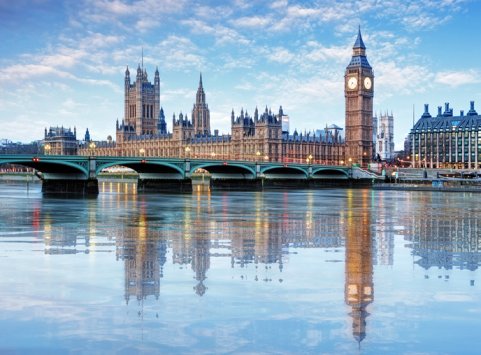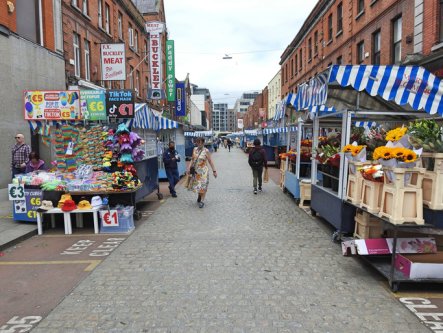Is It Safe to Travel to France? Safety Tips & AXA Travel Protection Guide
Planning a trip to France? Discover the safety landscape across France, common safety concerns, tips for safe travel, must-visit attractions, and health concerns. Learn about the value of travel protection plans and how AXA Travel Protection can enhance your safety and enjoyment during your trip to France. Get answers to FAQs and ensure a hassle-free and secure visit to France.
Is It Safe to Travel to France? Essential Safety Tips
- France is generally safe, but be aware of petty crime in crowded areas.
- Safety varies by region, with big cities having higher crime rates than small towns and rural areas.
- Stay informed and have a travel protection plan to stay safe on your trip.
Planning a trip to France promises a journey filled with culture, history, and culinary delights. But apart from the allure of iconic landmarks and picturesque landscapes, travelers often wonder: Is it safe to travel to France?
Let’s talk about the safety landscape across France, along with some practical tips to stay secure. Knowing the current situation at your destination is key to a great experience. And by being aware you can make informed decisions and enjoy France with confidence.
How Safe is it to Travel to France
Understanding the safety landscape and local laws will help you plan better. With proper precautions, a trip to France can be both safe and enjoyable.
The Safety Landscape Across France
The safety landscape across France varies by region. Major cities like Paris, Marseille, and Lyon attract many tourists but also face higher crime rates. Petty crimes, such as pickpocketing and scams, can be common in more crowded areas. So it is wise to stay alert, especially in tourist hotspots and public transportation.
In contrast, rural areas and smaller towns often experience lower crime rates with more friendly environments. However, it's still important to remain cautious and follow local advice.
France also has a robust law enforcement presence. Police are visible and responsive, enhancing overall safety. Emergency services are efficient and accessible, providing quick assistance when needed.
For up-to-date information, we recommend reviewing the France Travel Advisory by the US Department of State.
Common Safety Concerns for Travelers in France
Visitors to France may encounter typical safety considerations similar to those in most well-traveled destinations. While pickpocketing can be a concern, particularly in bustling locations such as the Eiffel Tower, metro stations, and tourist attractions, staying vigilant and securing your valuables is key to enjoying your trip.
Terrorism
France has experienced no major terrorist incidents in recent years. But in lieu of global threats, the French government has implemented effective counter-terrorism measures to ensure public safety. It's advisable to remain aware of your surroundings, particularly in public areas and during large events, to enhance your personal safety.
Scams and Burglaries
Tourists should be aware of potential scams such as fake petitions, counterfeit goods, and overcharging. By exercising caution and skepticism towards unsolicited offers, you can easily avoid falling into these traps. Additionally, some burglars target holiday rental properties and homes, particularly in major cities and coastal areas, where they perceive valuable items might be less securely stored than in local residences. Being mindful and taking precautions can help prevent these incidents.
Illegal Taxis
In France, official taxis from designated ranks and lines ensure licensed, insured, and metered services, avoiding the risks associated with illegal taxis. Tourists are advised to use these authorized taxis and to exercise caution against unofficial drivers who may approach them offering rides. Additionally, pedestrians should use designated crosswalks and adhere to traffic signals, ensuring safety on busy French roads, where driving norms may differ from those in the US.
Traffic safety is another thing to consider. French roads can be busy and driving habits are different from the US. Pedestrians should use crosswalks and look out for traffic lights.
Tips for Safe Travel in France
By following safety guidelines such as government travel advisories and securing your belongings, you can ensure a smooth and safe trip to France.
Stay Informed Through Travel Advisories
Travel advisories from official sources give you the latest information on risks and safety concerns in specific areas. They are issued by governments and reputable organizations and give you the inside scoop on what’s going on.
Before you travel check travel advisories from the U.S. government , French government and other international bodies. They cover everything from political stability to crime rates to health risks to natural disasters. They will also give you advice on areas to avoid and what to do to stay safe.
You must also sign up for travel alerts. Many government agencies offer services that will send you real-time updates via email or text. These will alert you to emergencies, big events or changes in the safety situation.
Choose Your Destinations Wisely
While France is a safe country, some areas are safer than others. Major tourist cities like Paris, Nice and Marseille get many visitors but also have more petty crime. Researching and picking your destinations carefully can make a big difference in your safety.
Conducting thorough research before your trip allows you to understand the specific safety considerations of each location. Look for neighborhoods known for their safety records and consider accommodations in well-regarded areas.
Being informed about local customs and norms can also help you blend in and avoid standing out as a target for opportunistic crimes. This proactive approach ensures you can enjoy your French vacation with ease.
You must also consider visiting less crowded but equally beautiful cities like Bordeaux, Strasbourg and Annecy, as they have lower crime rates. Once you’re there, choose well-reviewed accommodations and stay informed about the current safety situation in your chosen areas.
Practice Safe Travel Habits
To travel safely in France you need to adopt good habits and be proactive about the risks. Having a safety mindset is key to navigating the cities and landscapes of France without incident.
-
Stay Aware of Your Surroundings: Be aware of what’s going on around you, especially in crowded areas like markets, tourist attractions and public transport. Don’t get distracted by your phone while walking. Being alert will help you notice any suspicious activity and avoid danger.
-
Keep Personal Information Private: Don’t share your travel plans or personal info with strangers. Avoid discussing your itinerary or accommodation details in public. Use social media wisely and don’t post real-time updates or geotags that can alert thieves to your location.
-
Use Secure Payment Methods: Prefer credit cards or digital payments over carrying lots of cash. These are more secure and will give you better protection against theft. Make sure your credit card has international fraud protection and let your bank know you’re traveling to avoid any disruption.
-
Follow Local Laws and Customs: Familiarize yourself with the local laws and customs of France. Respecting these will prevent misunderstandings and legal issues. Simple things like dressing modestly in religious sites, not smoking in prohibited areas and following local etiquette will contribute to a safer and more enjoyable experience.
-
Speak a little French – and blend in: If you make an effort to speak a little French, even the most basic phrases, this will go a long way in France. It will help you break the ice and interact with the locals, many of whom will be happy to switch to English if they can.
How to Make the Most of Your Visit & Stay Safe
A bit of planning goes a long way to make your trip to this amazing country unforgettable one and safe. France is a wonderful country that has so much to offer in terms of cultural immersion, food, and experiences. By being informed and taking proactive measures, you can have it all without compromising your well-being.
Must-visit Attractions in France
France is famous for its landmarks, museums and historical sites. You can dive into the country’s art, history and architecture through its most famous and beautiful places.
-
Visit Historical Sites Safely: Many tour groups are available to visit famous landmarks like the Eiffel Tower, the Louvre Museum and Notre Dame Cathedral. Choosing a reputable guided tour will help you understand these historical sites and have a safe visit.
-
Eat Local: French classics like croissants, coq au vin's rich stews and ratatouille are a must for any foodie visiting the country. However, popular food areas can get crowded. So always be mindful of your belongings in these areas.
-
Enjoy Nature: From the French Riviera to the snow-capped mountains of the Alps, France has so much to offer for hikers and nature lovers. When enjoying such outdoor activities, follow all local guidelines and safety instructions.
The Verdict: Is France Safe for Tourists?
France has great laws and order and emergency services, so it’s generally safe for tourists. But you still need to stay informed and vigilant like any popular tourist destination.
Staying informed through travel advisories and local news will help you avoid risks. Choosing your accommodation in safe areas and being mindful of your belongings will be key to a hassle-free trip. In smaller towns and rural areas, crime rates are lower, so it’s more peaceful.
Health and safety regulations in France are strict, so public spaces, transportation and accommodations are well-maintained and secure. Knowing the local laws and customs will also enhance safety as it will prevent misunderstandings and help you navigate cultural differences.
Overall, with proper planning and awareness, you can enjoy France’s history, architecture and culture without significant safety concerns.
Things don’t always go as planned when you travel. Stuff can go wrong anywhere. A travel protection plan will help you out if something goes wrong. It’s like an extra layer of safety for your trip.
Get AXA Travel Protection for Your France Trip
While travel insurance isn’t mandatory for US tourists, it is still recommended to get one. You can compare different AXA Travel Protection Plans as they have different types of coverage and limits. Noteworthy coverages for a trip to France can be trip cancellations or interruptions due to weather or other unforeseen circumstances, baggage loss or delay, or emergency medical expenses, among others.
Whether you need help with lost luggage, emergency travel arrangements or legal assistance, AXA’s travel insurance specialists provide assistance 24/7.
So, before you begin your trip, pick a travel protection plan that fits your requirements. A France travel insurance with the right set of coverages could make your trip even better.
Also Read: France, Schengen France, Travel Requirements: France
FAQs
1. How do I prepare for emergencies or incidents while in France?
Planning for the unexpected makes your French trip even more relaxing. Travel insurance can help with medical costs, and knowing a few key phrases like “Où est l’hôpital?” (Where’s the hospital?) can be a lifesaver. Plus, writing down local emergency numbers (police: 17, ambulance: 15) will make you feel more prepared.
2. Are there any areas in France I should avoid?
Generally, France is safe. Just be aware of your surroundings in crowded areas, especially at train stations and touristy places. Pickpockets can be an issue there.
3. What are the health concerns for travelers in France?
Most health concerns for travelers in France are minor. Upset stomachs can happen if you’re not used to the local food so stick with bottled water and cooked food to be safe. If you’re going out of the city, be aware of insects like mosquitoes and ticks.
4. How do I stay safe at public events or festivals in France?
French festivals are a great way to soak up the culture, but a little preparation makes them even better. To stay safe, consider these tips: go with a friend or group, especially at night. Agree on a meeting point in case you get separated. Use a money belt for valuables, and avoid wearing flashy jewelry. Know the festival layout beforehand, and locate the emergency exits and first aid stations.

Get AXA Travel Insurance and travel worry free!
Travel Assistance Wherever, Whenever
Speak with one of our licensed representatives or our 24/7 multilingual insurance advisors to find the coverage you need for your next trip. Get an instant quote




